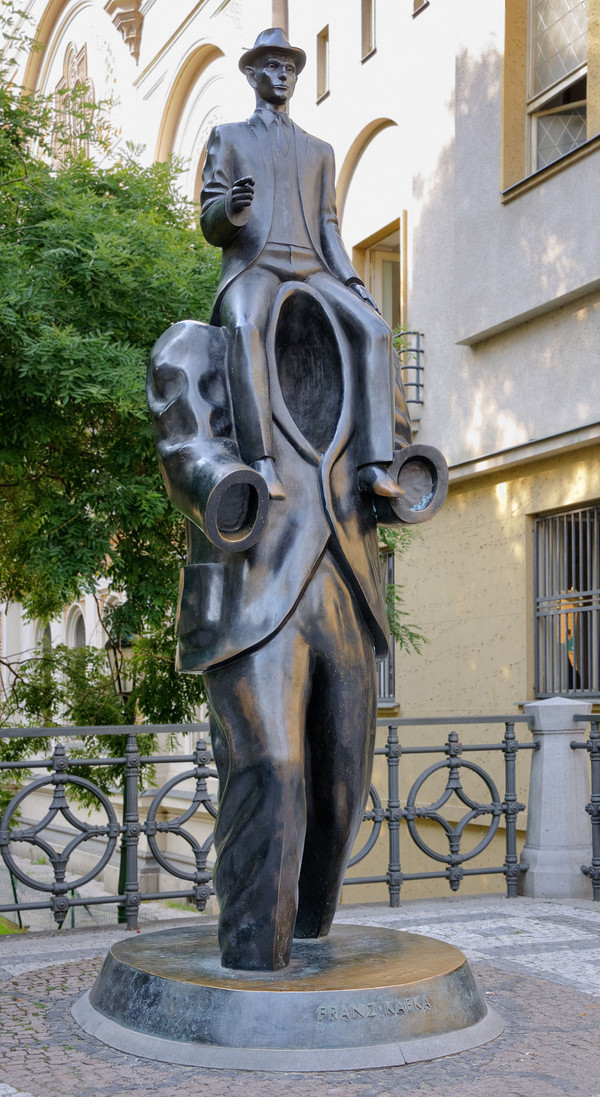
-
CHILDHOOD AND YOUTH
Franz Kafka was born in 1883, to a German-speaking Jewish family. He was the first of six children, though only he and his three sisters reached adulthood. His father, who ran a retail business, was a domineering uneducated man, while his mother was a quiet, shy, well-educated woman. Kafka suffered under his father's authoritarian regime. Their relationship left a dominant mark on his psyche, as is evident from his Letter to His Father (early 1920's).
Kafka, who was an excellent student, studied at a German elementary school, and later in a classic German Gymnasium, where High German was taught. Although he spoke Czech, he cultivated his German and identified with the German culture.
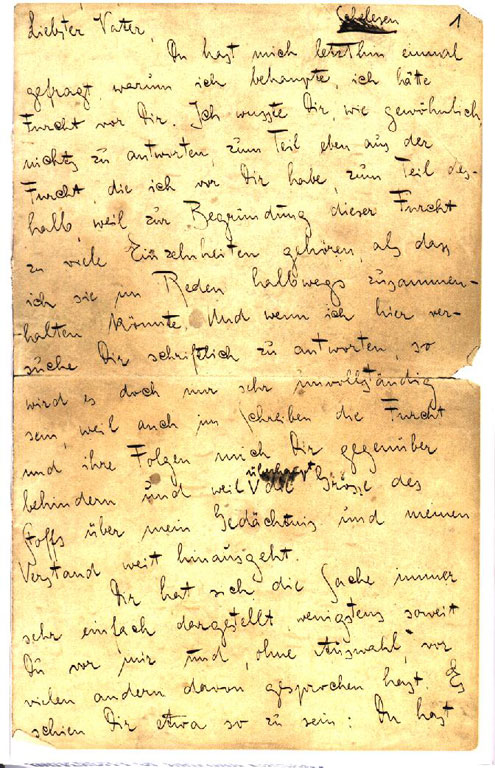 kafka's letter to his father, Deutsches Literaturarchiv Marbach
kafka's letter to his father, Deutsches Literaturarchiv Marbach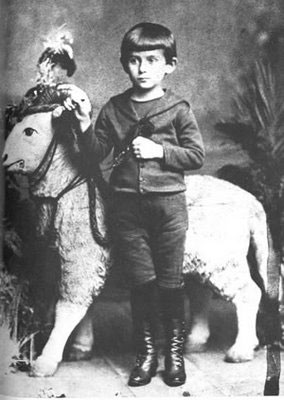 Kafka, 5 years old
Kafka, 5 years old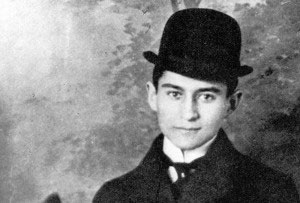 The Young Kafka
The Young Kafka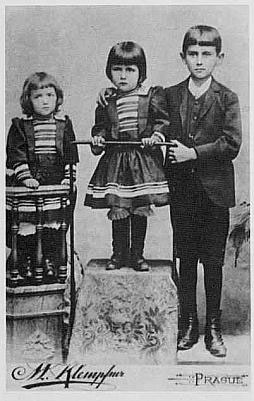 Kafka, 10 years old, with his sisters
Kafka, 10 years old, with his sisters -
UNIVERSITY DAYS,
Like many middle-class Jews in Prague, Kafka chose to continue his higher education at the German Charles Ferdinand University, where he at first studied chemistry, and later law. It was during this period that he made the acquaintance of Felix Weltsch, Oskar Baum, Franz Werfel, and Max Brod. Kafka, Weltsch and Brod would later call themselves Der enge Prager Kreis ("The Close Prague Circle").
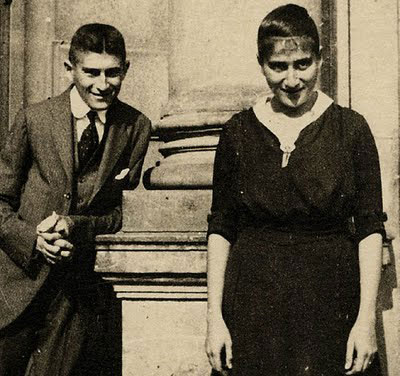 Kafka with his sister Ottilie near their parents' house in Prague
Kafka with his sister Ottilie near their parents' house in Prague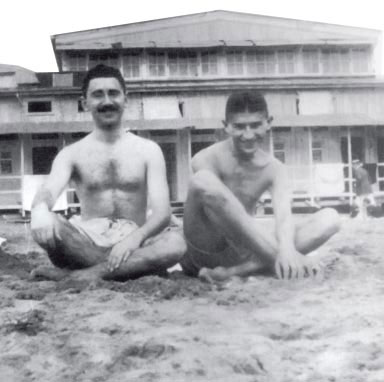 Franz Kafka and Max Brod on the beach
Franz Kafka and Max Brod on the beach -
KAFKA AND FRIENDS IN VIENNA, 1913
In 1913 Franz Kafka attended two large congresses in Vienna: a professional congress of insurance officers and the 11th Zionist Congress, where he met friends: the expressionistic authors Albert Ehrenstein and Otto Pick, as well as Lise Weltsch, Felix Weltsch's cousin, who was from Prague as well. As seen on the photograph, the friends did not only attend sessions of the Zionist Congress, but also spent some leisure time together. This photograph survived in two personal archives at the National Library of Israel: in Albert Ehrenstein's archives and among Lise Weltsch's papers.
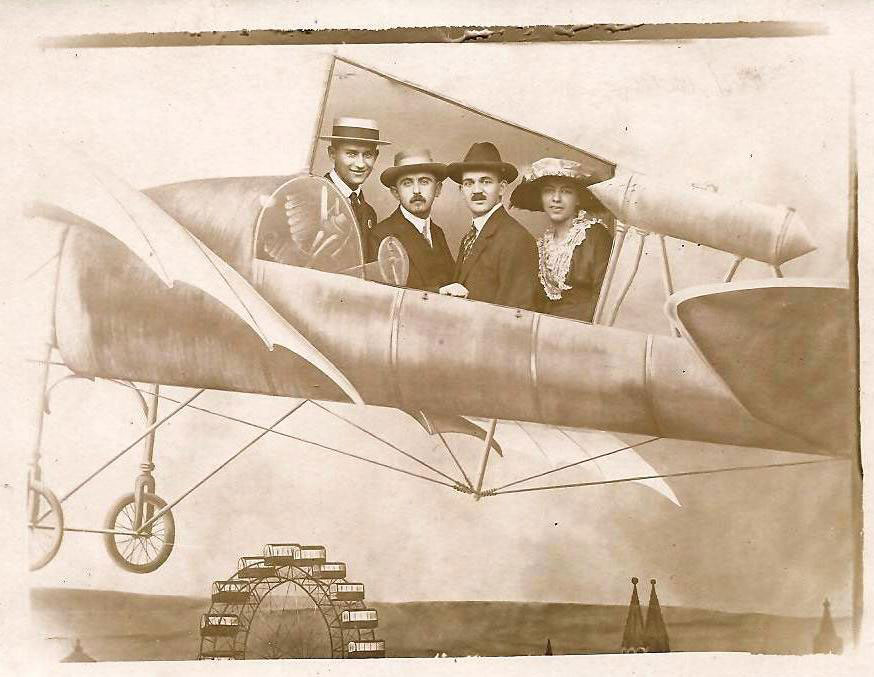 Kafka and Friends at the pleasure ground Prater in Vienna, 1913, NLI
Kafka and Friends at the pleasure ground Prater in Vienna, 1913, NLI -
KAFKA'S PRIVATE LIFE
Kafka had many relationships with women. He was actually engaged to four of them, though none of these relationships ever ended in marriage.
During WWI, Kafka received a draft notice. At first he was exempted by his employers; later, in 1917, when he attempted to enlist, Kafka was diagnosed with tuberculosis, from which he suffered increasingly until his painful death in 1924.
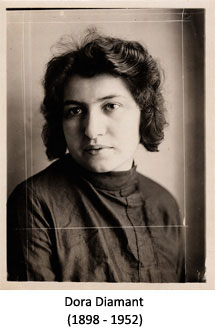 Dora Diamant, Kafka's lover, 1923-1924 until his death
Dora Diamant, Kafka's lover, 1923-1924 until his death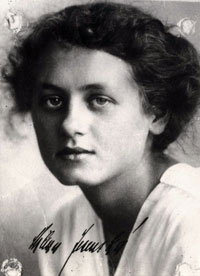 Milena Jesenska, Kafka's passionate correspondent, 1919-1923
Milena Jesenska, Kafka's passionate correspondent, 1919-1923 -
LETTER TO LISE WELTSCH, 1914
In spring 1914, Franz Kafka was about to go to Berlin in order to be betrothed to his first fiancée, Felice Bauer (whom he never married). In this letter Kafka invites Lise Weltsch, the young lady who was photographed with him and other friends from Vienna, to meet him and his fiancée in Berlin. Kafka expresses his delight at leaving his parents' home in Prague where he was residing then, and coming to spend some time in Berlin.
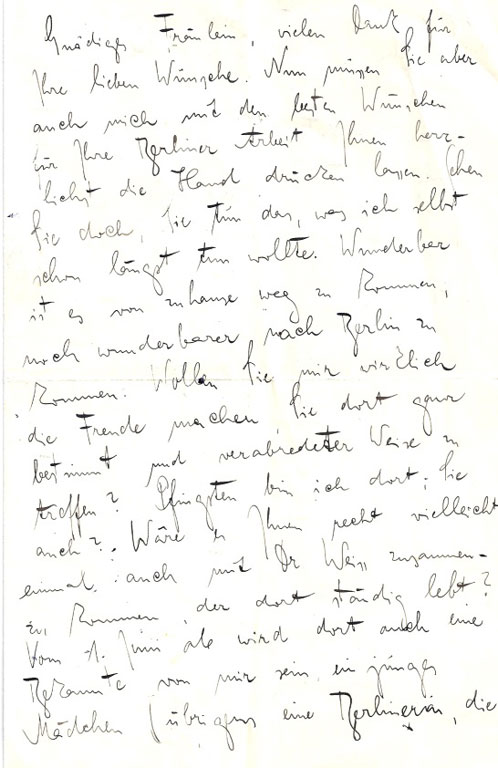 Kafka, Letter to Lise Weltsch, 1914, p.1, NLI
Kafka, Letter to Lise Weltsch, 1914, p.1, NLI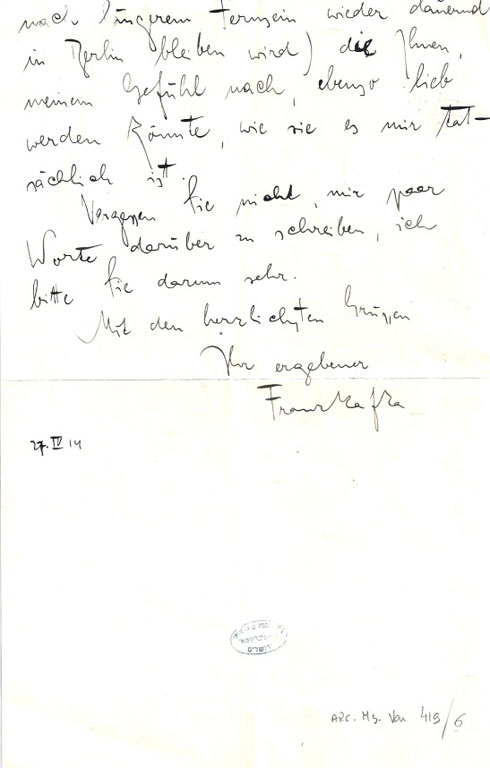 Kafka, letter to Lise Weltsch, 1914, p.2, NLI
Kafka, letter to Lise Weltsch, 1914, p.2, NLI -
THE BREAD JOB AND THE CALLING
After graduating in 1906, and completing his year of training, Kafka started to work as an insurance officer. Kafka called this his Brotberuf or "Bread Job", and constantly bemoaned the fact that he did not have enough time for his real passion: writing. Despite this, he wrote almost incessantly, writing stories, novels and letters. Still, he was extremely critical of his works. As a result, many of his texts remained unfinished. This is the case regarding his three famous novels, The Castle, The Trial, The Missing Man, as well as a number of stories which were found by his close friend, the writer Max Brod. One of his most famous stories is The Metamorphosis, which tells of the miserable Gregor Samsa who wakes up one morning to find himself transformed into a huge insect.
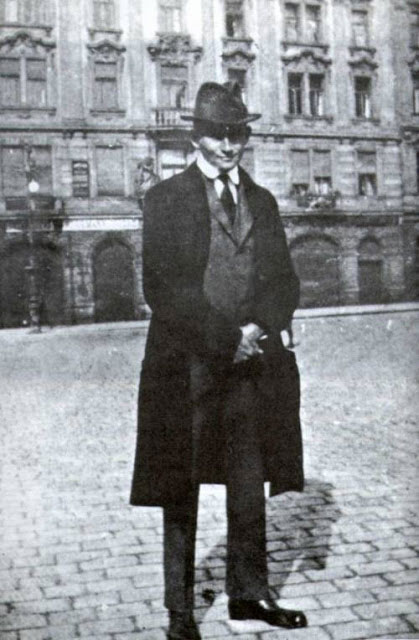 Kafka as insurance officer
Kafka as insurance officer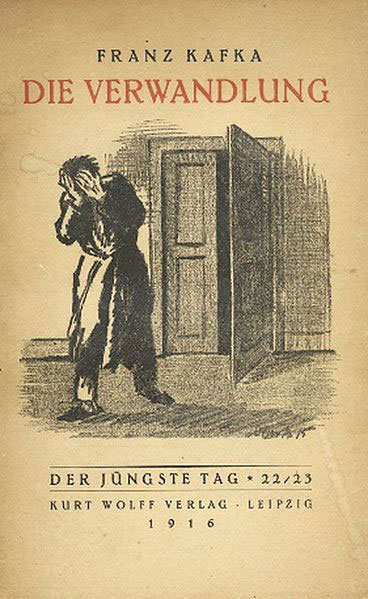 Kafka, 'The Metamorphosis', first edition cover, 1916
Kafka, 'The Metamorphosis', first edition cover, 1916 -
DEATH
Kafka died of tuberculosis at the age of 41. At that time the few texts he had published were known only among his friends and admirers from his close, avant-garde literary circle. Fame was to come soon after his death, when his best friend, Max Brod, refused to carry out his will in which he instructed him to burn all his writings. Max Brod chose to complete the many unfinished manuscripts and then published them. Success and fame came soon afterwards.
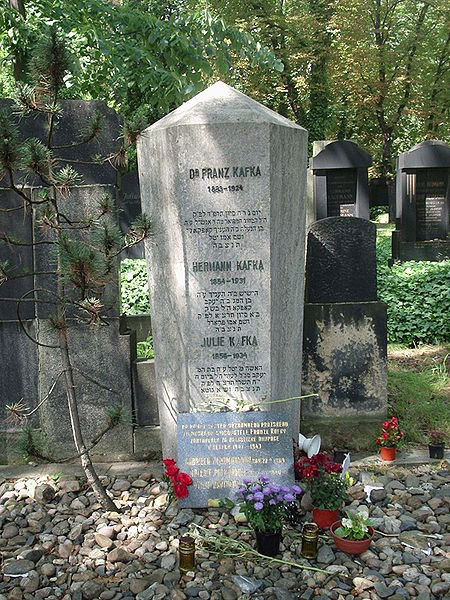 Franz Kafka's grave in Prague
Franz Kafka's grave in Prague